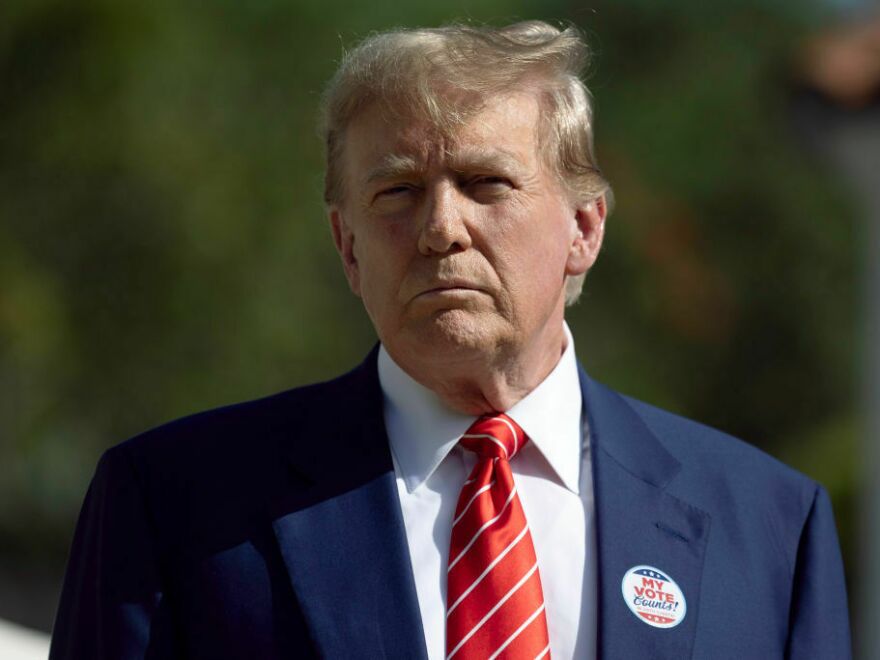Updated March 25, 2024 at 12:42 PM ET
Former President Trump had a mixed day in court Monday: A judge rejected his motion to sanction prosecutors and said jury selection in his hush money trial will start April 15; separately, a New York appeals court reduced the amount Trump must post as bond from nearly half a billion dollars to $175 million — and gave him another 10 days to post it to meet the civil fraud judgment against him.
Last week, Trump argued to an appeals court that a bond to cover $454 million was "a practically impossibility," because he doesn't have the cash to guarantee it right now. Trump had been facing a deadline Monday to post the $454 million bond or else face seizure of his assets.
In a statement, Trump said he will "abide by the decision of the Appellate Division, and post either a bond, equivalent securities, or cash." The statement was highly critical of Judge Arthur Engoron, the judge who presided over the civil trial case, and called his $454 million judgment "ridiculous and outrageous."
Separately, a New York judge on Monday set April 15 as the new start date in Trump's hush money case. Jury selection will begin April 15, and all prospective jurors will be informed that court will not convene on any date the jury is unable to attend due to Passover or other religious observances. Jury selection in the trial had been scheduled to start Monday, but in recent weeks federal prosecutors released more than 100,000 documents that could be related to the case. Trump, who has pleaded not guilty, called that release malfeasance, though the court finds that District Attorney Alvin Bragg was not at fault for the late documents.
Trump is accused of multiple counts of falsifying business records to keep an alleged affair secret at the end of the 2016 campaign. Although his criminal trial in New York is perhaps relatively less serious in scale, it would be a historic first trial against a sitting or former president.
The trial will coincide with the presidential campaign. Trump, the presumptive Republican presidential nominee, is running against the man who defeated him in 2020, President Biden.
Outside the court, Trump accused Bragg of timing the trial with the election. "This is election interference. That's all that is," he said.
Trump's legal troubles are entwined with both the 2020 and the 2016 campaigns: He faces state and federal charges related to trying to overturn the results in 2020. He also faces federal charges related to his handling of classified documents.
During the 2016 campaign, Michael Cohen, then Trump's personal attorney, learned that Stormy Daniels, the adult film actor, was planning to go public with news of an alleged affair with the real estate mogul. This was potentially damaging for Trump given that it came soon after the release of the Access Hollywood tape was released where Trump talked about grabbing women's genitals because "when you're a star they let you do it."
Cohen, who has since turned against Trump, has said he didn't think the campaign could withstand another blow of this kind. Consequently, he set up an LLC to pay Daniels to keep quiet. Trump allegedly agreed to a scheme to pay Cohen back by calling the reimbursements a "legal retainer," which they were not — a felony if District Attorney Bragg can prove Trump falsified the records to cover up another crime: making an illegal payment to benefit his campaign, in this case, the hush-money payments.
Copyright 2024 NPR. To see more, visit https://www.npr.org.




